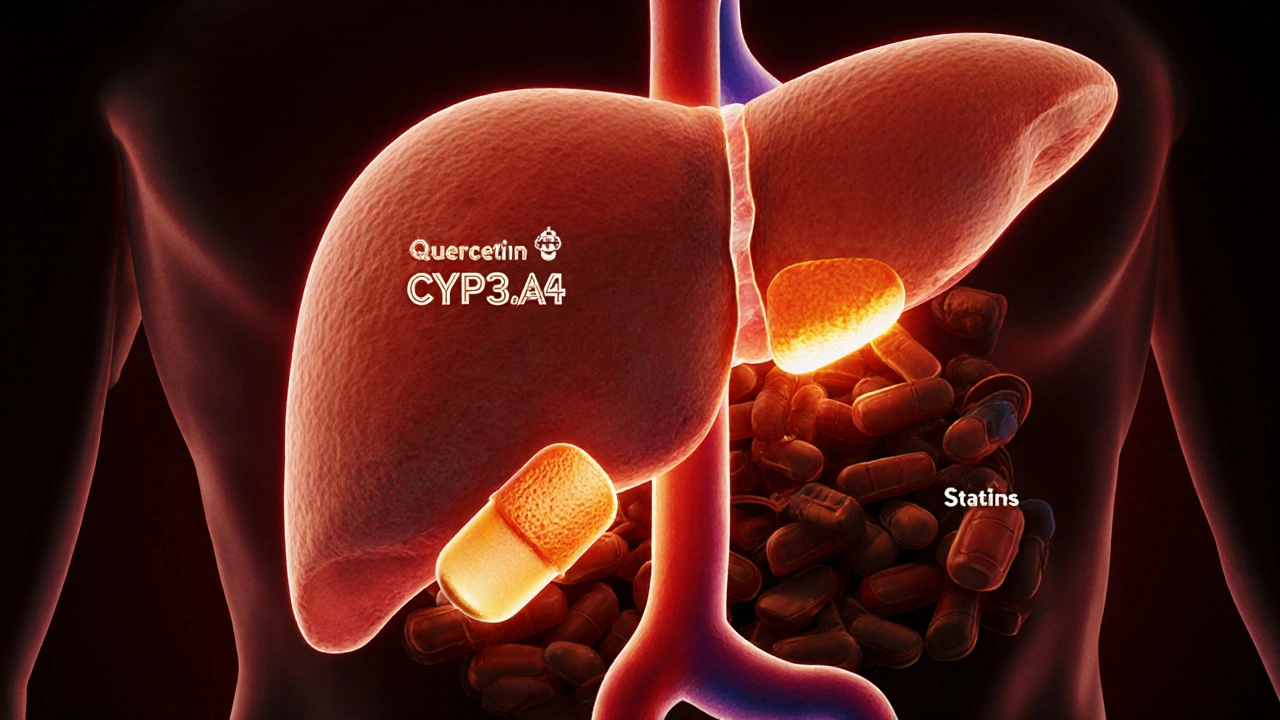
Quercetin and Medications: How Supplement Use Can Alter Drug Levels
Quercetin supplements can block liver enzymes that break down medications, leading to dangerous drug buildup. Learn which meds are at risk and how to stay safe.
When you take quercetin, a natural flavonoid found in apples, onions, and berries that acts as an antioxidant and anti-inflammatory compound. Also known as a plant pigment, it’s often taken as a supplement for immune support or allergy relief. But what most people don’t realize is that quercetin directly interferes with a group of liver enzymes called CYP enzymes, a family of proteins responsible for breaking down over 75% of all prescription drugs. These enzymes, especially CYP3A4 and CYP2C9, are the body’s main drug-processing system.
Think of CYP enzymes like factory workers on an assembly line. If quercetin shows up and blocks their tools, the whole line slows down—or worse, it backs up. That’s exactly what happens with some medications. For example, if you’re on warfarin, a blood thinner affected by CYP2C9, adding quercetin could raise your INR and increase bleeding risk. Or if you’re taking statins metabolized by CYP3A4, like simvastatin, quercetin might cause muscle pain or even rhabdomyolysis. This isn’t theoretical. Studies show quercetin can inhibit CYP3A4 by up to 40% in human liver cells. It’s not a drug, but it acts like one when it comes to metabolism. Even more, quercetin doesn’t just block enzymes—it can also induce them over time, meaning your body might start processing drugs faster after weeks of use. That’s why people on long-term quercetin supplements sometimes notice their meds suddenly stop working as well.
These interactions aren’t limited to prescription drugs. Quercetin also affects how your body handles common OTC painkillers, antidepressants, and even some antibiotics. If you’re on a medication with a narrow therapeutic index—like lithium, cyclosporine, or theophylline—quercetin can push levels into dangerous territory. And because supplements aren’t regulated like drugs, you never know how much quercetin you’re actually getting. One pill might have 500 mg, another 100 mg, and neither tells you if it’s pure or mixed with other flavonoids that also mess with CYP enzymes. The real danger? Most people don’t tell their doctor they’re taking it. They think it’s just a "natural" boost. But nature doesn’t care about your prescription bottle.
What you’ll find in the posts below are real-world examples of how substances like quercetin quietly change drug behavior. From warfarin genetics and CYP2C19 testing to how food and other compounds alter absorption, these articles show you exactly where hidden interactions live. No theory. No fluff. Just what happens when your supplement meets your medicine—and what to do about it.

Quercetin supplements can block liver enzymes that break down medications, leading to dangerous drug buildup. Learn which meds are at risk and how to stay safe.